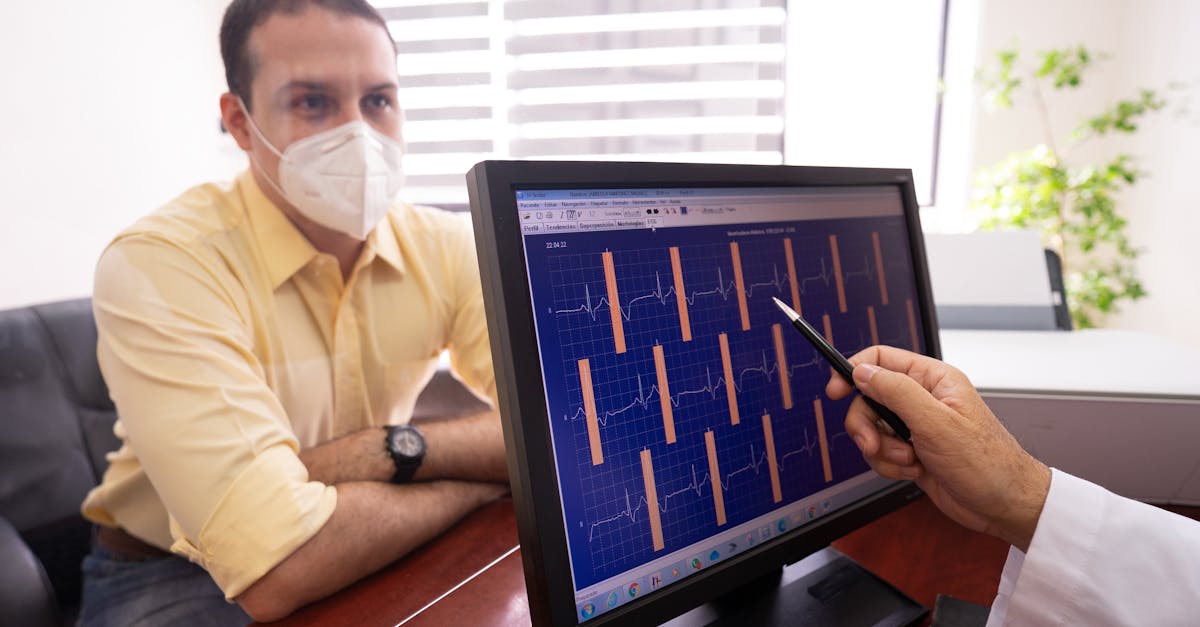
Table Of Contents
Stress Management Techniques
Stress management techniques play a vital role in disease prevention in Queensland. By effectively managing stress, individuals can reduce the negative impact it has on their overall health and well-being. Engaging in activities such as mindfulness meditation, yoga, and deep breathing exercises can help alleviate stress and promote a sense of calmness, leading to a healthier lifestyle.
Additionally, maintaining a healthy work-life balance and practising time management strategies are essential aspects of stress management. By prioritising tasks, setting boundaries, and taking regular breaks, individuals can reduce feelings of overwhelm and prevent stress-related ailments. Incorporating these techniques into daily routines can significantly contribute to disease prevention in Queensland and improve the quality of life for individuals across the region.
Practice Relaxation Techniques
Practice Relaxation Techniques is a vital aspect of disease prevention in Queensland. Stress can weaken the immune system and make individuals more susceptible to various health issues. Therefore, incorporating relaxation practices into daily routines can help in maintaining overall well-being. Engaging in activities such as deep breathing exercises, meditation, or yoga can significantly reduce stress levels and promote a sense of calmness and balance in one's life.
In addition to mental and emotional benefits, relaxation techniques can also have a positive impact on physical health. Research suggests that stress reduction plays a crucial role in preventing chronic diseases such as heart disease, diabetes, and hypertension. By taking the time to unwind and relax, individuals can enhance their immune function and decrease inflammation in the body, ultimately contributing to a better quality of life. Disease Prevention in Queensland urges individuals to prioritize self-care and incorporate relaxation practices to support their overall health and well-being.
Seeking Preventive Healthcare
Seeking preventive healthcare plays a crucial role in maintaining overall well-being and reducing the risk of developing various diseases. In Queensland, a proactive approach to healthcare is essential to promote optimal health outcomes. Regular check-ups and health screenings are fundamental components of disease prevention in Queensland. By attending these appointments, individuals can detect potential health issues early on, allowing for timely intervention and treatment. Additionally, healthcare providers can offer personalised advice on maintaining a healthy lifestyle, further enhancing preventive measures.
Immunizations and vaccinations are another key aspect of preventive healthcare in Queensland. By following the recommended vaccination schedule, individuals can strengthen their immune system and protect themselves against infectious diseases. Vaccinations not only safeguard the individual but also contribute to the collective health of the community by reducing the spread of contagious illnesses. Embracing immunizations as part of routine preventive healthcare is a proactive step towards Disease Prevention in Queensland, promoting a healthier population and minimising the burden on the healthcare system.
Regular Checkups and Screenings
Regular check-ups and screenings are crucial components of disease prevention in Queensland. By attending these appointments, individuals can proactively monitor their health and detect any potential issues early on. This proactive approach can lead to timely interventions and treatments, ultimately reducing the risk of developing serious health conditions.
In Queensland, health authorities recommend that individuals adhere to specific check-up schedules based on their age, gender, and health history. These routine screenings often include blood pressure checks, cholesterol tests, blood glucose monitoring, and cancer screenings. By following these recommendations and participating in regular check-ups, individuals can take an active role in safeguarding their health and well-being. Disease prevention in Queensland relies significantly on the early detection and management of health conditions, making regular check-ups an essential practice for maintaining optimal health.
Immunizations and Vaccinations
Immunizations play a crucial role in Disease Prevention in Queensland. By receiving recommended vaccinations according to the schedule outlined by health authorities, individuals can protect themselves and others from various contagious diseases. Vaccinations not only help prevent illnesses but also contribute to reducing the spread of infections within the community. Therefore, it is essential for individuals of all age groups to adhere to the vaccination guidelines provided by healthcare professionals.
By staying up to date with vaccinations, individuals in Queensland can significantly lower their risk of contracting preventable diseases. Following the recommended vaccination schedule ensures that individuals maintain their immunity levels against specific diseases, helping create a safer environment for everyone. Public health campaigns and initiatives also play a vital role in raising awareness about the importance of immunizations and their significant impact on disease prevention.
Following Recommended Vaccination Schedule
Following a recommended vaccination schedule is a crucial aspect of disease prevention in Queensland. Vaccinations are designed to stimulate the immune system to create antibodies against certain diseases, thus preparing the body to fight off infections effectively. By adhering to the recommended vaccination schedule, individuals can significantly reduce their risk of contracting serious illnesses and help protect themselves and the community from outbreaks.
It is important to note that vaccines are not just for children; adults also benefit from staying up to date with their vaccinations. By ensuring that vaccinations are received on time and following the recommended schedule, individuals can contribute to the overall health and well-being of the population. Disease prevention in Queensland relies heavily on widespread vaccination coverage, making it essential for everyone to understand the significance of following the recommended vaccination schedule.
FAQS
What are some stress management techniques to prevent diseases?
Stress management techniques to prevent diseases include regular exercise, adequate sleep, mindfulness practices, and seeking support from loved ones or healthcare professionals.
How can relaxation techniques contribute to disease prevention?
Relaxation techniques such as deep breathing exercises, meditation, yoga, and progressive muscle relaxation can help reduce stress levels, lower blood pressure, and boost the immune system, thus contributing to disease prevention.
Why is seeking preventive healthcare important for disease prevention?
Seeking preventive healthcare through regular check-ups and screenings can help detect potential health issues early, allowing for timely intervention and treatment to prevent the development of serious diseases.
What are the benefits of regular check-ups and screenings in disease prevention?
Regular check-ups and screenings can help identify risk factors for diseases such as cancer, diabetes, and heart disease, enabling healthcare providers to recommend lifestyle changes or medical interventions to prevent the onset of these conditions.
How do immunizations and vaccinations contribute to disease prevention?
Immunizations and vaccinations help protect individuals from infectious diseases by stimulating the immune system to produce antibodies against specific pathogens, thereby reducing the risk of infection and the spread of diseases within the community.


